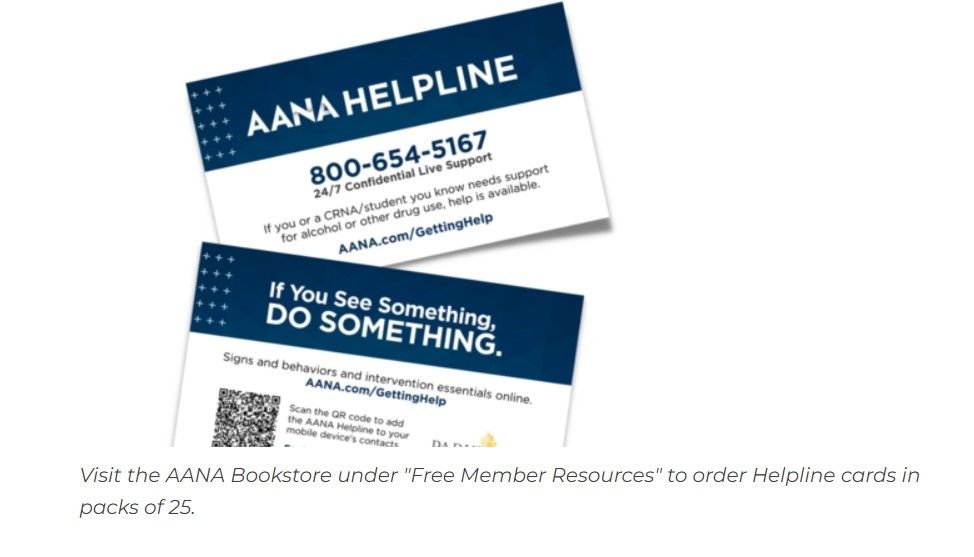
National Minority Mental Health Awareness Month, observed every July, is dedicated to raising awareness about the unique mental health challenges faced by racial and ethnic minority groups. This observance aims to improve access to mental health services, reduce stigma, and promote culturally competent care.
For diverse Certified Registered Nurse Anesthetists (CRNAs) and Student Registered Nurse Anesthetists (SRNAs) pursuing a degree in nurse anesthesia, this month is particularly significant. The mental health landscape in healthcare can be challenging, and minority CRNAs and SRNAs often face additional stressors such as discrimination, cultural misunderstandings, and lack of representation. These factors can impact their mental health and overall well-being.
In the video, Dr. Chuncey Ward, CRNA speaks about preserving and prioritizing your mental health.
During National Minority Mental Health Awareness Month, the following points are emphasized:
Raising Awareness: Highlighting the mental health issues that disproportionately affect minority CRNAs and SRNAs, such as anxiety, depression, and burnout. This awareness can lead to better support systems and coping strategies.
Promoting Mental Health Resources: Ensuring that CRNAs and SRNAs have access to mental health resources that are culturally sensitive and readily available. Institutions and professional organizations can play a crucial role in providing these resources.
Encouraging Open Dialogues: Fostering environments where minority CRNAs and SRNAs feel safe to discuss their mental health concerns without fear of stigma or judgment. Open dialogues can lead to better understanding and support from peers and superiors.
Addressing Racism and Marginalization: Recognizing the significant stress caused by dealing with racism and marginalization. These experiences can contribute to feelings of isolation, anxiety, and depression. Creating supportive networks and advocating for anti-racist policies within institutions are crucial steps in mitigating these effects.
Managing Life and Clinical Stressors: Acknowledging the dual pressures of personal life stressors and clinical responsibilities. Minority CRNAs and SRNAs often navigate complex dynamics both at work and home, which can compound their stress levels. Providing targeted support to manage these stressors is essential for their well-being.
Supporting Student Financial Stressors: Understanding the financial burdens faced by SRNAs who are unable to work while in a rigorous graduate program. Financial stress can be a major source of anxiety, impacting their mental health and academic performance. Pre-planning financial wellness can alleviate some of these pressures.
Advocating for Diversity and Inclusion: Emphasizing the importance of diversity within the nurse anesthesia profession. A diverse workforce can improve patient care by bringing different perspectives and experiences to the table. While this is the mission of Diversity CRNA, it takes everyone's efforts to bring about change for all.
Supporting Career Development: Offering mentorship and support programs tailored to the needs of minority CRNAs and SRNAs. These programs can help them navigate their careers while maintaining good mental health. The Diversity in Nurse Anesthesia Mentorship Program is a good place to start to connect with divers CRNAs and SRNA.
ASK FOR HELP: THE WHEN, WHERE, AND HOW FOR MENTAL HEALTH NEEDS
Nurse anesthetists, like other health care professionals, can experience occupational hazards of stress, burnout, compassion fatigue, and post-traumatic stress disorder (PTSD). (See news and data on the prevalence of issues impacting CRNA/nurse anesthesiologist mental health below.)
Self-care is important, along with learning healthy coping mechanisms in both your personal and professional life.
When feelings or symptoms affect your ability to function, seek professional advice. Teletherapy options are expanding and more readily available.
AANA Helpline
The AANA Helpline—800-654-5167—is available 24/7 for a live, confidential response with support, information, and helpful resources.
For a crisis with potential immediate risk for harm to yourself or others, call 911 or 988 for the 988 Suicide & Crisis Lifeline.

